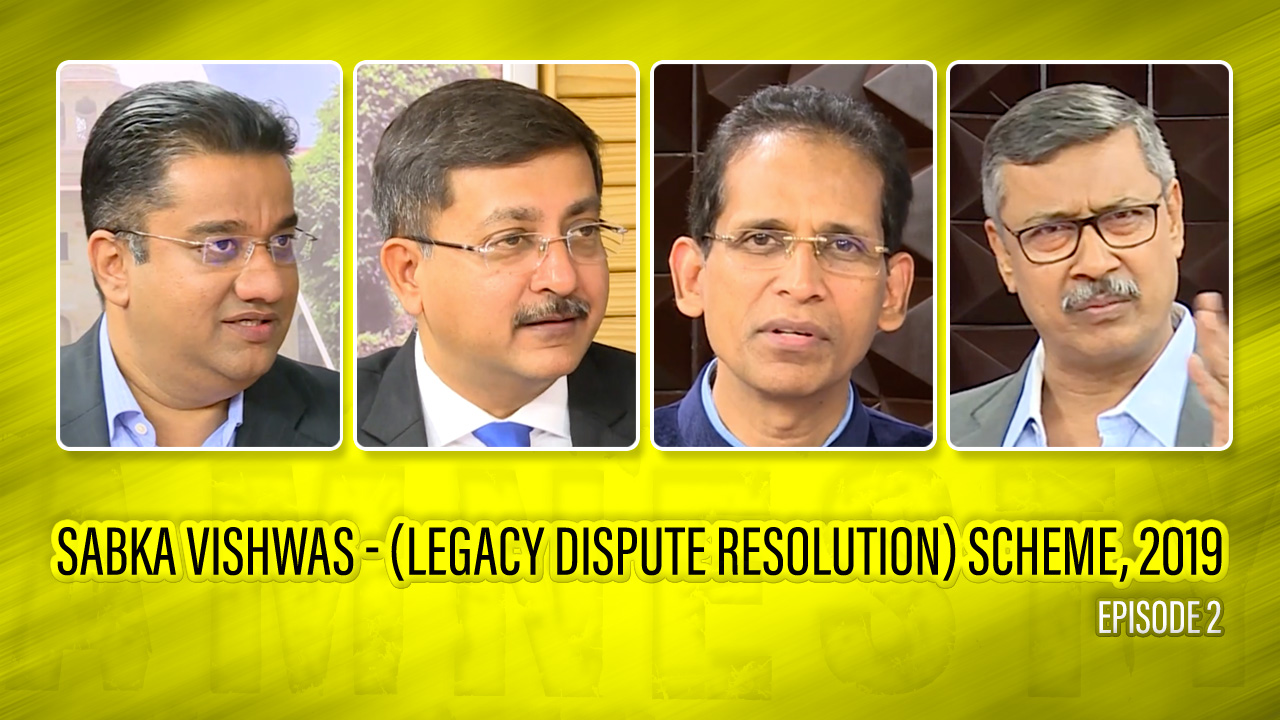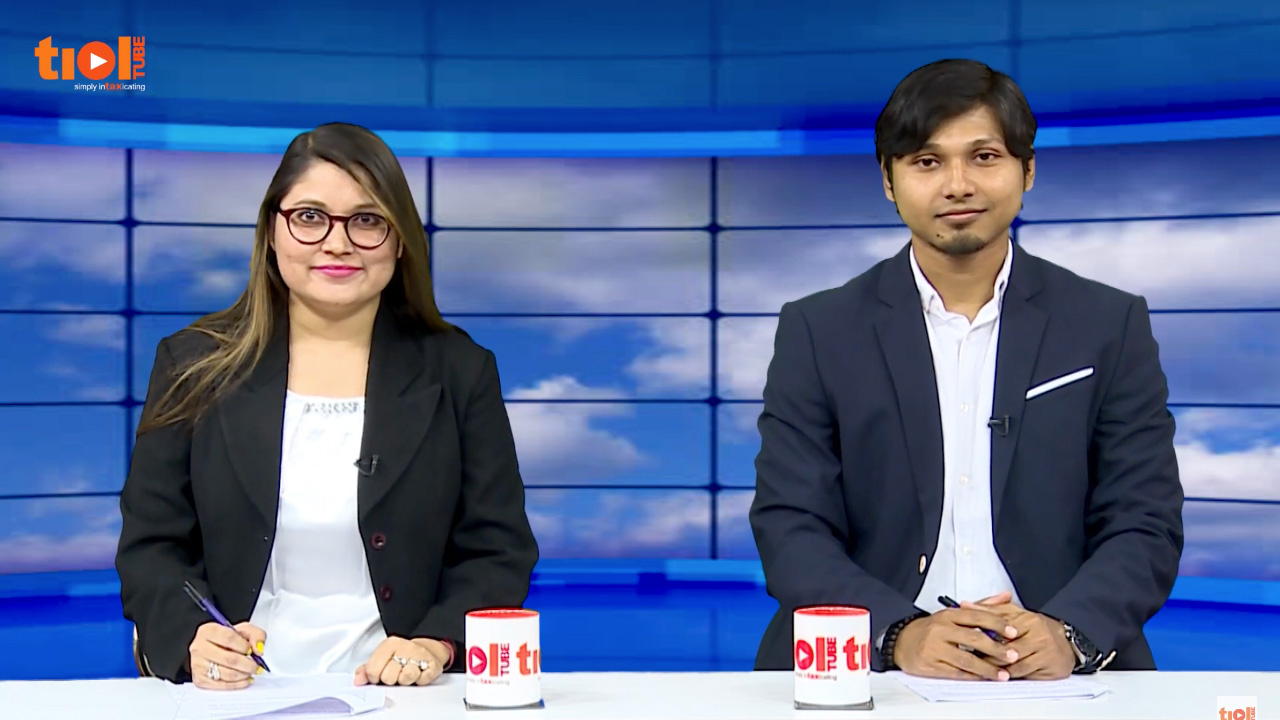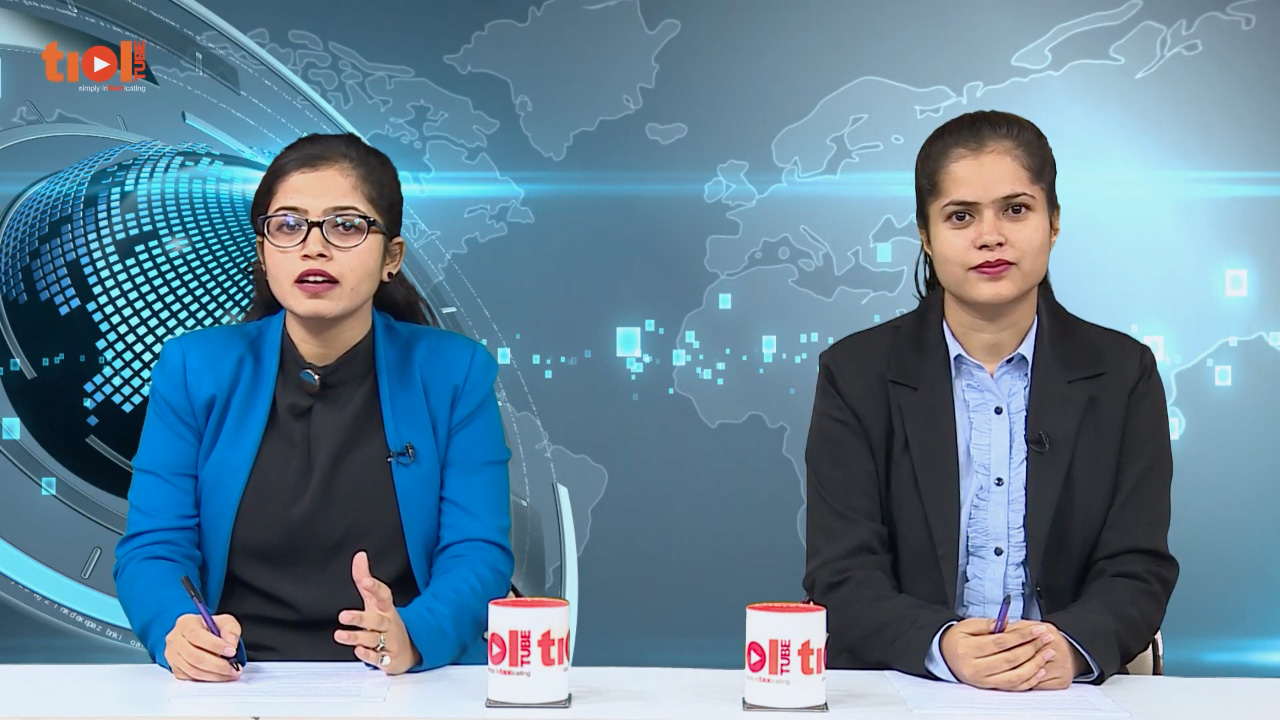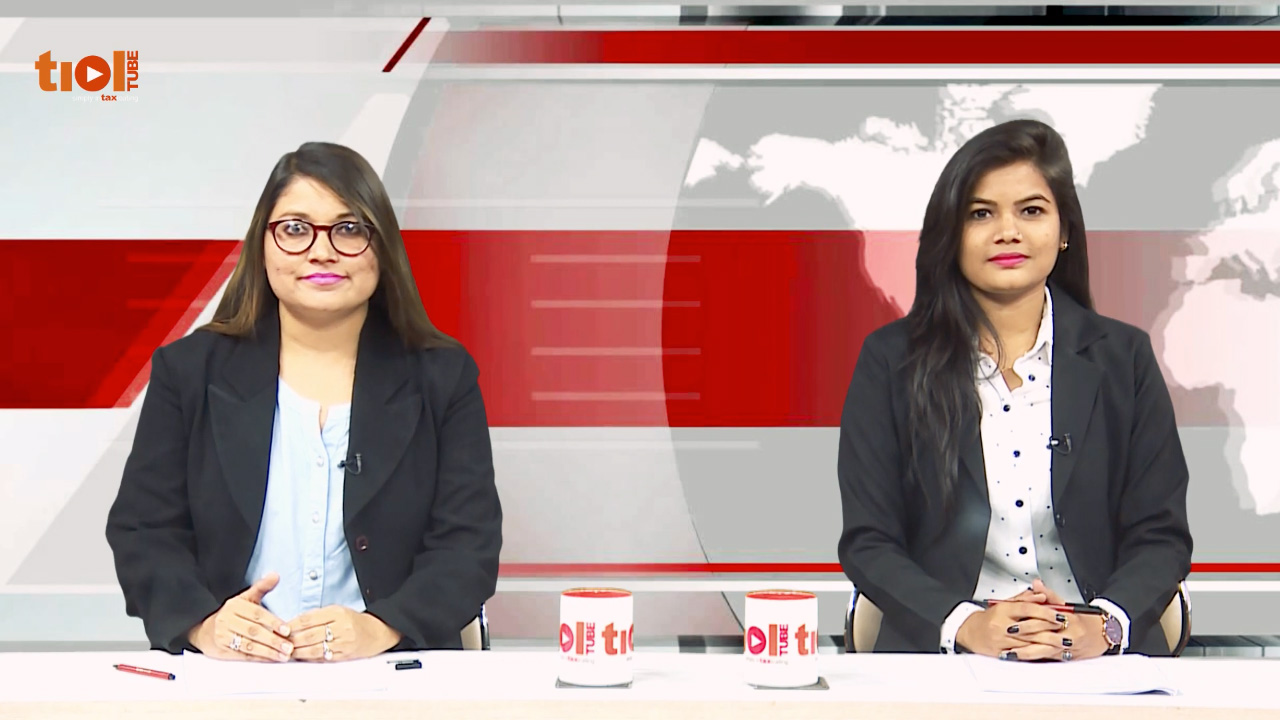SERVICE TAX
2019-TIOL-3100-CESTAT-MUM
APL India Pvt Ltd Vs CST
ST - De novo adjudication proceedings were not completed in proper manner inasmuch as the findings recorded in the order dated 12.08.2014 of the Tribunal has not been properly adhered to - matter is once again remanded for re-adjudication - being the second round of litigation, de novo adjudication proceedings should be completed within a period of 3 months from the date of receipt of this order: CESTAT [para 4]
- Matter remanded: MUMBAI CESTAT
Bharat Protection Force Vs CCE & ST
ST - Show cause notice was from January, 2012 to June, 2012 but the orders passed by the authorities covered the period from January, 2012 to March 2016 - Appellants have already paid the amount of service tax alongwith interest and penalty, therefore, they are confining the arguments only limited to the imposition of penalty of Rs. 2,00,000/- which has been imposed under Section 70 of the Finance Act r/w Rules 7C of the Service Tax Rules, 1994 as late fee for not filing ST-3 Returns for the period January, 2012 to March, 2016.
Held: Receipts of the Appellants were well within the exempted limits as per the notification 8/2008 and, therefore, in view of the peculiar facts of the case, a lenient view can be taken - other aspects are not gone into - while upholding the demand of service tax alongwith interest and penalty, Bench is of the view that it will meet the ends of justice if the penalty of Rs. 2 lakhs for not filing the ST-3 Returns is set aside – Appeal disposed of: CESTAT [para 3]
- Appeal disposed of: MUMBAI CESTAT
2019-TIOL-3098-CESTAT-MUM
Impresario Entertainment And Hospitality Pvt Ltd Vs CCGST
ST - Common input services used for providing taxable output service and for exempted service - as CENVAT credit was taken in its entirety, department disputed such availament on the ground that provisions of sub-rule (3) of rule 6 of CCR are attracted - as appellant has reversed the credit amount attributable to such exempted service and also paid the interest before issuance of show cause notice, such reversal of credit is to be construed as non-availment of CENVAT credit and in such eventuality, restrictions contained in rule 6 ibid would not be applicable - ratio of the apex court decision in Chandrapur Magnet Wires (P) Ltd. vs. CCE, Nagpur = 2002-TIOL-41-SC-CX although delivered under the MODVAT regime is squarely applicable - no merits in impugned order, hence set aside and appeal allowed: CESTAT [para 3, 4]
- Appeal allowed: MUMBAI CESTAT
2019-TIOL-3097-CESTAT-ALL
Manik Enterprises Vs CC, CE & ST
ST - Commissioner (Appeals) has no jurisdiction to condone the delay, in filing the appeal, beyond the period prescribed under the Act - admittedly there was a delay of one month and 20 days in filing the appeal, therefore, Commissioner (Appeals) has rightly rejected the same as barred by limitation - impugned order is upheld and the appeal is rejected: CESTAT [para 4]
- Appeal rejected: ALLAHABAD CESTAT
CENTRAL EXCISE
Mammon Concast Pvt Ltd Vs CCE & ST
CX - Revenue's entire case is solely based upon the scribbling made in the recovered loose papers, without there being any evidence of actual manufacture and removal of the final products - no reasons to uphold the findings of clandestine removal: CESTAT [para 4]
CX - Mere shortages of final products detected at the time of visit of the officers cannot ipso facto lead to the allegations and findings of clandestine removal, in the absence of any evidence to the contrary - impugned order set aside and appeals allowed with consequential benefit: CESTAT [para 4, 5]
- Appeals allowed: DELHI CESTAT
2019-TIOL-3102-CESTAT-MUM
Coromandel International Ltd Vs CCE
CX - Appellant is a manufacturer of pesticides - Period involved is May 2006 - CARTAP was imported as a raw material on payment of CVD and SAD - amount of Rs.14,87,490/- paid as CVD was taken as CENVAT credit, however, without using the same, appellant sent the said goods to its sister concern - Revenue alleges that since the CARTAP was not used for the intended purpose, taking of CENVAT credit was not justified, SCN issued for recovery of credit - demand confirmed along with interest and imposition of equal amount of penalty - appellant is before the CESTAT and submits that they had paid duty amounting to Rs.13,26,000/- on the basis of normal transaction value determined by it in terms of Rule 7 of the Valuation Rules and the remaining amount of Rs.1,61,525/- was subsequently reversed from the cenvat account; that since credit availed by the appellant in respect of the raw material dispatched to its sister unit was entirely reversed/paid, no further amount is recoverable.
Held: In an identical situation covering the period March 2005 to March 2006, the Tribunal had vide final order dated 04.10.2018 settled the matter by holding that since the duty payment on the input has been accepted by the department, proceedings cannot be initiated for recovery of the cenvat amount - Therefore, no merits in the impugned order - same is set aside and appeal is allowed: CESTAT [para 3, 4]
- Appeal allowed: MUMBAI CESTAT
2019-TIOL-3101-CESTAT-MUM
Jolly Board Ltd Vs CGST & CE
CX - Refund - Rule 5 of CCR, 2004 - Merely because the said capital goods viz. 'segments and castings' gets exhausted after it is used in grinding the materials of approximately 150 MTs, it cannot be classified as an 'input' used for manufacture of finished goods - cash refund claims relating to the 'segments and castings' were rightly rejected on the ground that the same were capital goods, hence not covered under Rule 5 of CENVAT Credit Rules, 2004 - regarding application of correct formula for computing the refund claim, matter is remanded: CESTAT [para 8, 9]
- Appeal partly allowed: MUMBAI CESTAT
CUSTOMS
2019-TIOL-2459-HC-P&H-CUS
Jairath International Vs UoI
Cus - Respondent in terms of Rule 16 of Drawback Rules, 1995 as well Valuation Rules, 2007 has no power to reassess a shipping bill which was duly assessed by proper officer at the time of export of goods - Since in the present case, goods in question stood exported, therefore, impugned order is not sustainable: High Court [para 15]
Cus - On plain reading of Section 17, 50 and 51 with Valuation Rules, 2007, Bench finds that Respondent is neither vested with power of reassessment of goods already exported under Rule 16 of Drawback Rules, 1995 nor Valuation Rules, 2007 - The goods which stand exported do not fall within ambit of 'export goods' as defined under Section 2(19) of 1962 Act, thus Respondent department cannot invoke Rule 6 & 8 of Valuation Rules, 2007 - In view of judgment of Supreme Court in the case of ITC Vs CCE - 2019- TIOL-418-SC-CUS-LB , Bench finds that shipping bill either self assessed or assessed by proper officer is amenable to appeal by both sides - Respondent by way of show cause notice under Rule 16 of the Drawback Rules, 1995 cannot modify assessed shipping bill: High Court [para 15]
Cus - Writ petitions are allowed on all the counts, namely, limitation, absence of mechanism and lack of power to frame reassessment of goods already exported - impugned order dated 25.11.2016 is quashed and set aside: High Court [para 15]
- Petitions allowed: PUNJAB AND HARYANA: HIGH COURT
2019-TIOL-3105-CESTAT-MUM
Ashwin K Joshi Vs CC
Cus - Exporter was proceeded against for claiming drawback on exports declared to be valued much higher than the actual procurement price - It is, therefore, apparent that the condition of the goods or any other physical characteristics, which an agent or its employee may be privy to, is not the subject of controversy - There is no allegation that the goods of a different description or of apparently of poor quality had been shipped but the allegation is that the value of the goods has been inflated - In these circumstances, the penalties imposed on M/s HP Joshi & Co, CHA and employee Ashwin Joshi under section 114(i) of Customs Act, 1962 would not sustain - The sole allegation against the 'Custom House Agent' is that they allowed unauthorized use of their licence by Amit Champaklal Shah - Mis-use of licence is to be visited with penalties prescribed in the special law for Regulations framed under section 146 of Customs Act, 1962 - The charge against Ashwin Joshi was based upon a statement of Shilpesh Ramakant Sawant which, despite retraction, was held to be relevant as the retraction claiming use of force was not corroborated with any other evidence of having been compelled - A proposition, which fails the test of reasonableness, must be corrected by evidence but a statement of retraction does not have to be - Therefore, the penalties imposed on the custom house agent, M/s HP Joshi & Co, and Shri Ashwin Joshi fail: CESTAT [para 10]
Cus - Bombay High Court has held that there is similarity of allegation against both Kiran Nagindas Vohra and Iqbal Mohan Amritlal Mehra and that any discrimination thereto is not proper - The original authority has excluded Kiran Nagindas Vohra from penal action while imposing penalty on Iqbal Mohan Amritlal Mehra - statements that led to the imposition of penalties against the two individuals were retracted and hence not admissible as evidence - there is no documentary, or other, evidence to support the allegations in the show cause notice against these two individuals - In the absence of any material evidence that could overcome the findings of the original authority in favour of Kiran Nagindas Vohra and of any material that could support the findings against Iqbal Mohan Amritlal Mehra, without reference to the statements alone, the penalties against them will not sustain - Consequently, penalties challenged in the appeals are set aside and the appeals are allowed - Appeals of Revenue for imposition of penalties on Kiran Nagindas Vohra are dismissed: CESTAT [para 11 to 13]
- Party's appeals allowed/Revenue appeals dismissed: MUMBAI CETAT
2019-TIOL-3104-CESTAT-MUM
CC Vs Enox Overseas Pvt Ltd
Cus - Review Order was passed by the Committee of Chief Commissioners directing the Commissioner of Customs for filing of appeal before the Tribunal - However, on perusal of the appeal records, Bench finds that instead of the said designated/specified officer, the appeal has been signed and verified by the Deputy Commissioner of Customs - Since, in terms of Section 129D of the Customs Act, 1962, the Committee of the Chief Commissioners has reviewed the matter and directed the officer concerned for filing of appeal before the Tribunal, such direction cannot be considered as empty formality and has to be strictly adhered to for the purpose of achieving the legislative mandate - since the proper officer i.e. Commissioner of Customs has not preferred the appeal by himself in the manner prescribed in the statute, Bench is of the view that the appeal filed by Revenue cannot be maintained on ground lack of jurisdiction - appeal filed by Revenue is dismissed, however, Revenue is at liberty to file proper appeal as per the mandate of the statute: CESTAT [para 6]
- Appeal dismissed: MUMBAI CESTAT | 







